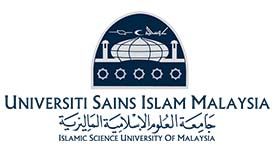Overview of Doctor of Philosophy in Counseling in University of Islamic Sciences Malaysia Malaysia
In line with the saying “Religion is advice giving”, the counselling program was introduced with the aim to help society in combating mental health issues in accordance to Islamic principles and teachings. Specifically, it refers to the collaborative effort between a counsellor and client in seeking cognitive and behavioral change.
Through this program, it is hoped to be able to expand the Islamic teachings by widen the space for researchers and educators to study, research and spread knowledge related to counselling.
The Doctor of Philosophy in Counselling program is offered by research mode of study.
OBJECTIVES OF THE PROGRAMME
The Doctor of Philosophy in Counselling program is designed to achieve the following objectives:
- To produce well verse postgraduates in counselling and Islamic studies, who are also able to carry out development, prevention, counselling, guidance and rehabilitation duties;
- To provide in depth understanding to the graduate students on the philosophy, theories and concepts related to counselling and Islamic studies, which can be applied in daily life;
- To upgrade the skills in counselling, management, human development programs and Islamic development through professional counselling approach;
- To create awareness on the importance of counselling as a relevant da’wah mechanism to current demands; and
- To produce capable individuals and researchers in applying the knowledge, theories and concepts in counselling when carrying out tasks in various work sectors.
COMPONENTS OF THE PROGRAM
- Students are required to pass the compulsory courses in research methodology and data analysis.
- Students are required to sit and pass the qualifying test before they can start writing their thesis. The qualifying test is an examination of a research proposal presented in front of the qualifying test committee members. Should the students fail in their first attempt, they are allowed to retake the test once.
ENTRY REQUIREMENTS
- A relevant Master’s degree by Coursework or Mixed Mode with a minimum CGPA of 2.75/4.00 or equivalent from the University or any other institutions of higher learningrecognised by the Senate; or
- A relevant Master’s degree by Research recognised by the Senate; or
- Other relevant qualifications equivalent to a Master’s degree AND with relevant professional experience recognised by the Senate; or
- Incumbent Master’s degree Student who has fulfilled the requirement of Regulations 8.0 and is approved by the JKPSU and the consent of the Senate to convert his/her study to a Ph.D. degree; or
- In case the CGPA does not meet the requirement, the selection will subject to a rigorous internal assessment by the faculty along with an endorsement by the Senate.
Note: 1-year work experience is equivalent to 0.05 CGPA
- ENGLISH LANGUAGE REQUIREMENTS
An applicant shall show evidence of proficiency in the English language based on the following criteria:
- TOEFL minimum score of 180 (computer-based) or 64 (internet-based); or
- IELTS minimum score of Band 5; or
- MUET minimum score of Band 3; or
- graduated from institutions that use English as the main medium of instruction, AND will be required to seat for University English Proficiency Test (UEPT) with minimum score of Band 3; or
- graduated in the field of Teaching of English as a Second Language (TESL), English Language Studies (ELS) and equivalent from a university recognised by the Senate; or
- a native speaker of English.
(2) Research-mode applicant who intends to write his/her thesis in Arabic will be required to fulfil the criteria as follows:
- TOEFL minimum score of 150 (computer-based) or 52 (internet-based); or
- IELTS minimum score of Band 4; or
- MUET minimum score of Band 2; or
- UEPT minimum score of Band 2.
(3) An applicant who does not fulfil any of the criteria under (1) & (2) will be allowed to register conditionally and is required to fulfil any of the criteria under (1) or (2), within 12 months (for Master’s students) and 24 months (for Ph.D. students).


